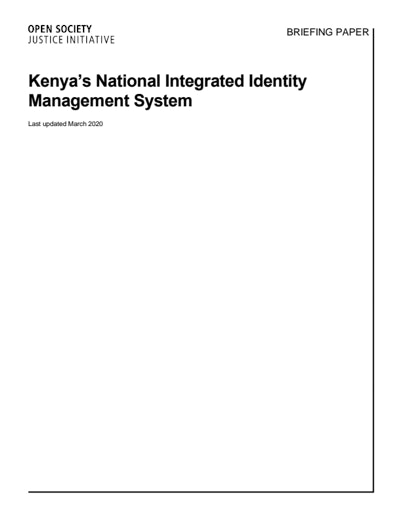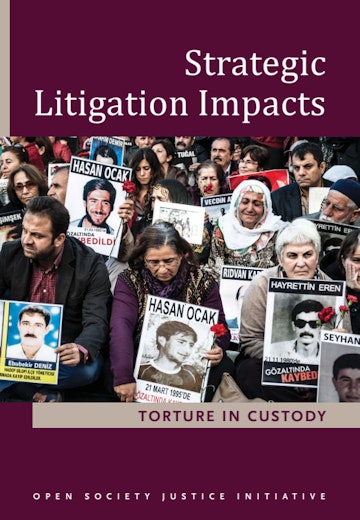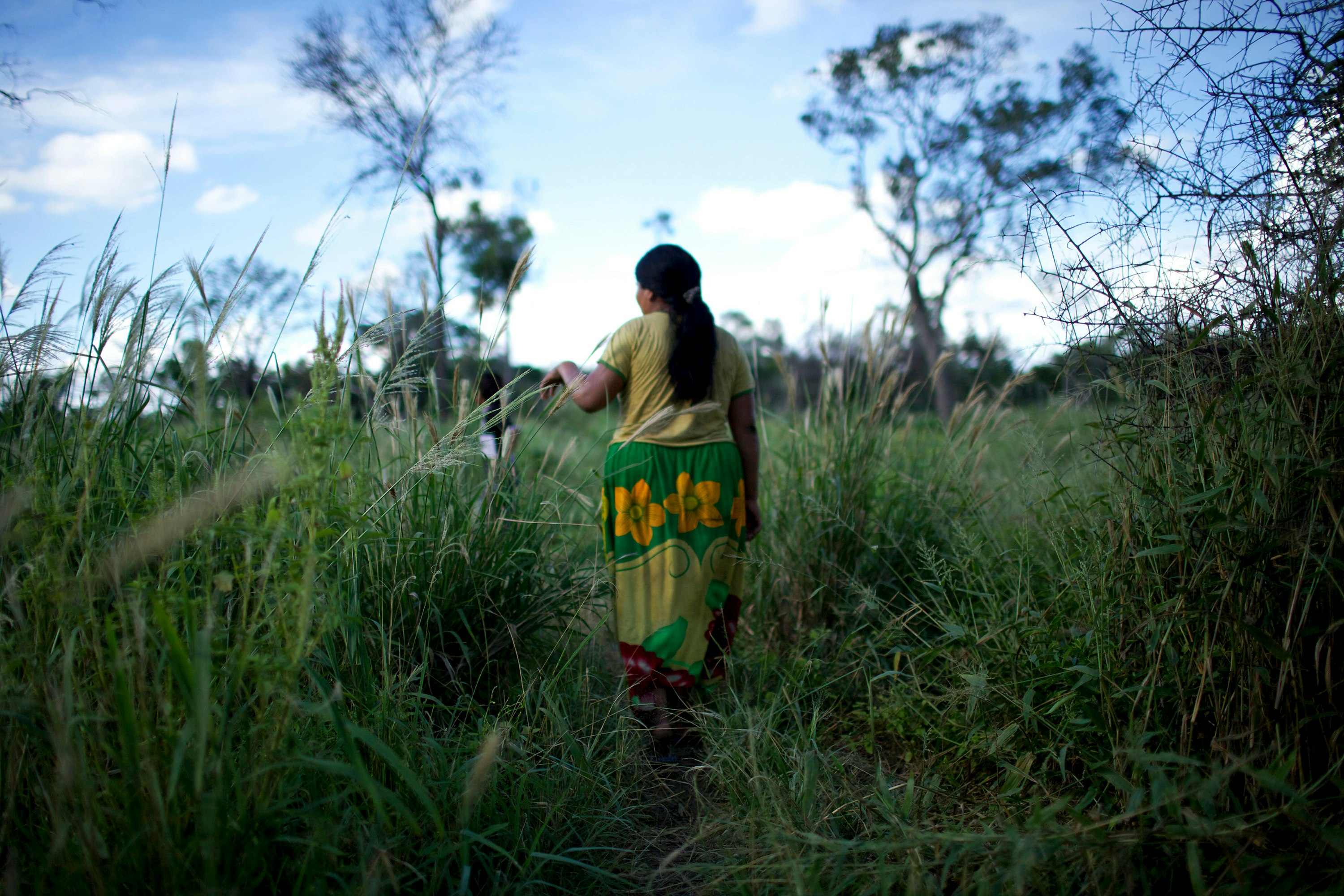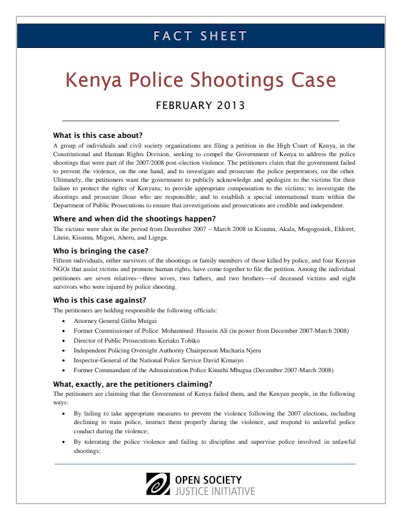Fact Sheet: Police Shootings in Kenya
What is this case about?
A group of individuals and civil society organizations are filing a petition in the High Court of Kenya, in the Constitutional and Human Rights Division, seeking to compel the Government of Kenya to address the police shootings that were part of the 2007/2008 post-election violence. The petitioners claim that the government failed to prevent the violence, on the one hand, and to investigate and prosecute the police perpetrators, on the other. Ultimately, the petitioners want the government to publicly acknowledge and apologize to the victims for their failure to protect the rights of Kenyans; to provide appropriate compensation to the victims; to investigate the shootings and prosecute those who are responsible; and to establish a special international team within the Department of Public Prosecutions to ensure that investigations and prosecutions are credible and independent.
Where and when did the shootings happen?
The victims were shot in the period from December 2007 to March 2008 in Kisumu, Akala, Mogogosiek, Eldoret, Litein, Kisumu, Migori, Ahero, and Ligega.
Who is bringing the case?
Fifteen individuals, either survivors of the shootings or family members of those killed by police, and four Kenyan NGOs that assist victims and promote human rights, have come together to file the petition. Among the individual petitioners are seven relatives—three wives, two fathers, and two brothers—of deceased victims and eight survivors who were injured by police shooting.
Who is this case against?
The petitioners are holding responsible the following officials:
- Attorney General Githu Muigai
- Former Commissioner of Police Mohammed Hussein Ali (in power from December 2007–March 2008)
- Director of Public Prosecutions Keriako Tobiko
- Independent Policing Oversight Authority Chairperson Macharia Njeru Inspector-General of the National Police Service David Kimaiyo
- Former Commandant of the Administration Police Kinuthi Mbugua (December 2007–March 2008)
What, exactly, are the petitioners claiming?
The petitioners are claiming that the Government of Kenya failed them, and the Kenyan people, in the following ways:
- By failing to take appropriate measures to prevent the violence following the 2007 elections, including declining to train police, instruct them properly during the violence, and respond to unlawful police conduct during the violence;
- By tolerating the police violence and failing to discipline and supervise police involved in unlawful shootings;
- By refusing to mount prompt, independent, impartial, effective, and public investigations of unlawful acts by the police;
- By failing to redress the serious human rights violations committed by police during the post-election violence through compensation, restitution, medical and psychosocial services, public apologies, and other reparations to the survivors and victims’ families.
What law do the petitioners say that the government violated?
The petitioners claim that certain Kenyan laws and both the repealed and the new Constitution of Kenya, read in conjunction with international treaties to which Kenya is a party, create legal obligations that the Government of Kenya has failed to meet. In particular, the laws violated, through the government’s action or inaction, include:
- The Kenyan Constitution, both repealed and present, which included or includes the right to life, the prohibition of torture, inhuman and degrading treatment, the right to a remedy, the right to security of the person, and the right to effective remedy, among other provisions;
- Kenyan laws including the Police Act, the Criminal Procedure Code, the International Crimes Act, and various other acts governing the police and policing, among others;
- International treaties to which Kenya is a party, including the International Covenant on Civil and Political Rights, the Convention Against Torture and Other Cruel, Inhuman and Degrading Treatment, the African Charter on Human and Peoples’ Rights, the Rome Statute of the International Criminal Court, and the Treaty of the East African Community
How has the Kenyan government failed in its legal obligations?
The laws listed above require the Kenyan government, including its various relevant bodies such as the police, the Attorney General, the DPP, and others, to undertake to protect the Kenyan people from violence by taking appropriate preventative action (including, for example, police training and oversight) and ameliorative action in case violence occurs nonetheless. The government failed both to take all necessary measures to prevent the police from shooting civilians unlawfully, and, once that happened, to properly investigate and prosecute offenders. Furthermore, the government, through its police and security forces, ordered the shooting of civilians in a coordinated and systematic fashion such that the violence amounted to state policy. Finally, the shootings targeted a large number of civilian victims and were carried out systematically, making the violence rise to the level of crimes against humanity. Under both national and international law, the Kenyan government has an absolute duty to investigate and prosecute such crimes, and utterly failed to do so.
Why did the petitioners have to bring this case?
Despite repeated private requests and public calls, both domestic and international, for independent, effective, and credible investigations and prosecutions of police involved in unlawful shooting of civilians during the election-related violence, no such investigations or trials have occurred. The only trial against a police perpetrator concluded when the police shooter, who was clearly identified on video, was found innocent because the evidence, held in police custody, did not match the weapon of the accused. In the absence of action by the Government of Kenya, the individuals and organizational petitioners in this case saw no choice but to ask the High Court of Kenya to compel the government to fulfill its legal obligations.
Kenya's National Integrated Identity Management Scheme (NIIMS)
Kenya's introduction of a national digital identity scheme has triggered protests from local human rights and community groups concerned with both privacy, and the scheme's impact on minority communities.

Strategic Litigation Impacts: Torture in Custody
This study looks at how activists in Argentina, Kenya, and Turkey have sought to use the courts to secure remedies for torture victims and survivors, bring those responsible to justice, and enforce and strengthen the law.

Losing their Land, Indigenous Peoples Turn to the Courts
Paraguay's Yakye Axa people lost control over their traditional forest lands to cattle ranchers and soy farms. A new report looks at their efforts to use litigation to claim compensation.

